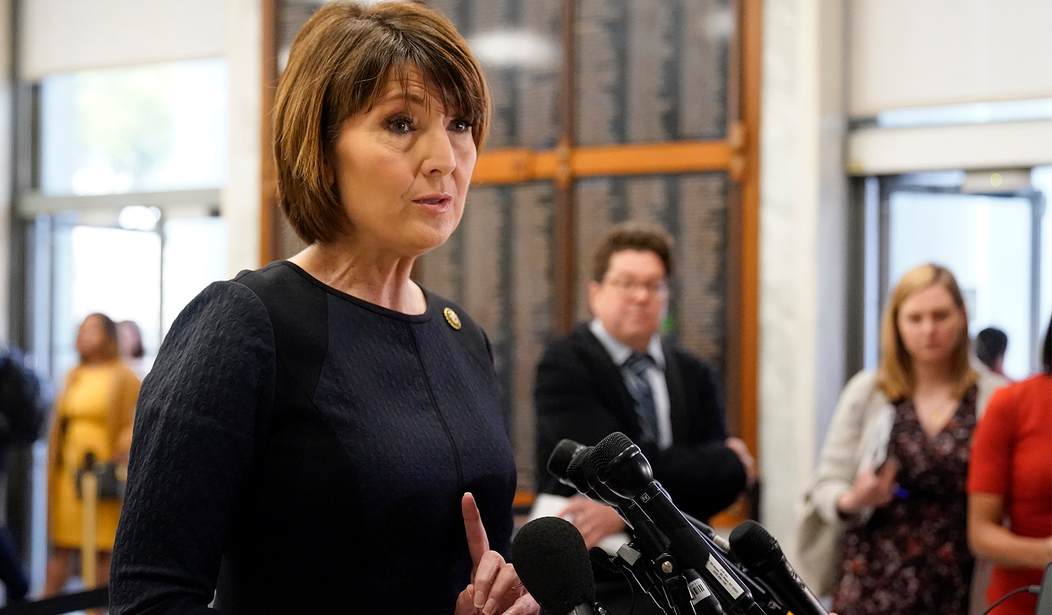In an era plagued by crisis and partisan gridlock, my lifetime home district state representative, Rep. Cathy McMorris Rodgers (R, WA-5), is setting up the nation for a rare bipartisan victory. Her efforts will protect public safety and prove to the nation that Washington can still govern effectively.
Rodgers, who chairs the Energy and Commerce Committee, scheduled an April 30 hearing to push for passage of Sens. Ted Cruz and Ed Markey’s AM Radio for Every Vehicle Act. It is not an exaggeration to say this bill, which fellow Washington Sen. Maria Cantwell’s full Senate Commerce Committee already greenlit, will save lives.
Heavily subsidized car manufacturers are pinching pennies at the expense of public safety. Despite taking tens of billions in taxpayer money over the last few years, some carmakers are ignoring the warnings of the Federal Communications Commission, defense policy shapers, and FEMA and removing AM radio reception from their new model vehicles. Leaders on the federal, state, and local levels have continuously stated that AM radios need to remain in cars for public safety reasons, but the carmakers are forging ahead without AM. They are doing so even though it costs next to nothing to maintain AM radio in their vehicles.
While other platforms, such as satellite radio and smartphones, can communicate information in times of emergency, AM radio is often the only tool that works in the eye of the storm. Further, AM radio works in many places that never have cell phone reception. The most recent example was the Maui, Hawaii fires of 2023, when residents ran to their cars to receive critical news updates from their AM stations as the fires and high winds knocked out cell and internet service, as well as power across the island. The availability of AM radio was the only source of life-saving information at that time.
Recommended
AM radio is so critical to our nation's National Public Warning System (the system the federal government uses to connect with the public during emergencies) that every former director of the FEMA from the past four presidential administrations, dispatched a letter to Congress urging them to pass the AM Radio for Every Vehicle Act. They wrote that removing AM radio would undermine its effectiveness and jeopardize FEMA's ability to communicate with the public in an emergency. Current FEMA leadership has warned Congress that if automakers continue pulling AM radios, millions of Americans could lose access to “critical, life-saving” information during emergencies.
While some elitists in their metropolitan bubbles might not realize it, AM radio isn’t just necessary in emergencies. For much of the country that lacks the same cellphone and Internet reliability, it’s essential 24/7.
As Rep. McMorris Rodgers said, “My constituents in Eastern Washington rely on AM radio. It is how they hear the news in their communities, listen to sports, and receive information during emergencies. In many parts of my district, FM radio is spotty and there is no access to broadband, so AM radio is the only option.”
Her district isn’t alone.
At the conclusion of the 2024 Farm Bureau, delegates from state and county farm bureaus nationwide adopted a policy resolution stating their desire to see the AM radio bill passed.
Speaking on the resolution, Sam Kieffer, the Vice President of Public Policy for the American Farm Bureau Federation, said, “Agriculture is done where the land is,” and “cell phone service isn’t even available” for a lot of his organization’s members who live in rural areas. “Usually AM is, and it's a great opportunity for them to stay abreast of very important things like weather and news and it keeps them connected. In many ways, it’s a safety issue.”
In February, even those who live in metropolitan areas received a reminder of just how fragile telecommunication reception is when millions of Americans lost cellphone coverage completely for hours on end. This unexpected disconnect struck the ire of many state and local public safety officials and organizations, who feared for public safety. AM radio remained resilient during this time.
As University of Central Oklahoma professor Alyssa Provencio outlined to USA Today, “while cell service in the U.S. is typically fairly dependable and [February’s] issues were limited in scope, there's a long list of potential emergency situations when cell phones could become unreliable” — among them: weather issues and cyber attacks.
The federal government has spent millions bolstering the reliability of AM radio to withstand the worst weather disasters, it has also hardened AM radio stations in the event of other threats such as an EMP attack. Such an attack might be able to take out our cellphone towers, but the Department of Homeland Security and FEMA are confident that AM radio will remain available to transmit crucial information with the public.
Calling Sen. Cruz and Markey’s AM Radio for Every Vehicle Act up for a hearing will allow Rep. McMorris Rodgers to soon call the bill for a committee markup and vote, just like Sen. Cantwell did in the Senate Commerce Committee. Seeing two of my elected representatives play such a significant role in one of the most important pieces of legislation Washington will consider this year is a joy to see, and it’s a boon for the rest of the country as well.
Thank you for joining Sens. Cantwell, Cruz, and Markey in this important fight, Rep. McMorris Rodgers. The American people won’t soon forget this.
Phil Kiver, Ph.D., is a Washington-based defense and public safety analyst. He received his doctorate in strategic studies at Henley-Putnam University.

























Join the conversation as a VIP Member